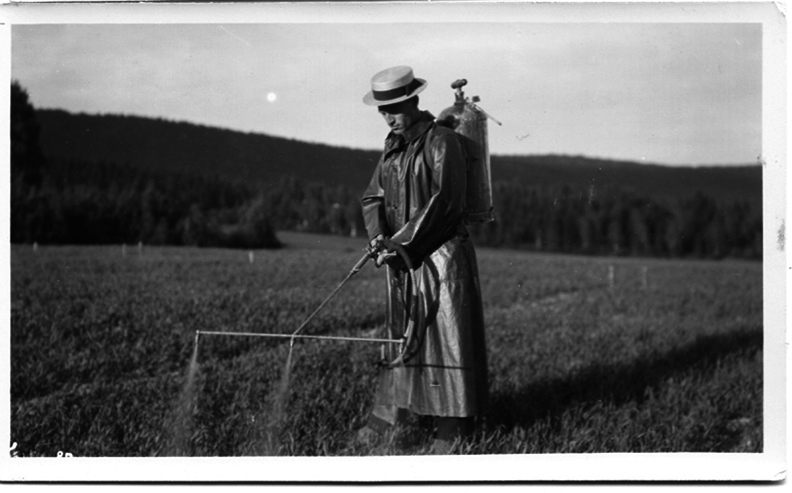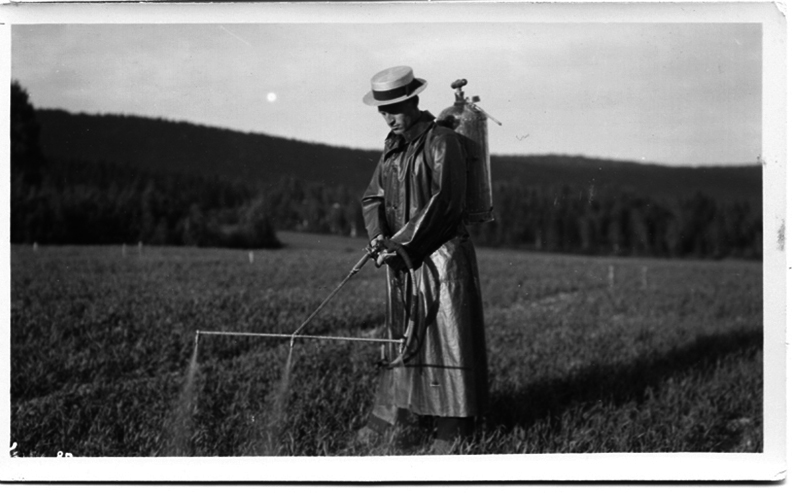Korsmos ugressarkiv
Publisert
In 2012 the artists found crates filled with well-preserved posters, books, letters, documents, roots, printing plates, seeds and a neatly protected herbarium. They got the privilege to work on site in the archive, where they began an exploration of historical materials as well as a systematization of their own artistic process and collaboration, all in the spirit of Emil Korsmo.
More info and opening times at Entrée.
Emil Korsmo was a skilled communicator whose knowledge of weeds was spread as never before in Norway and internationally. This was a time, after World War 1, concerned by food shortages and low production. Natural diversity in the fields was a key reason for reduced harvests and Korsmo’s research became central in a battle towards more profitable and efficient agriculture. The byproduct is an assembly of unique material that has been waiting to be rediscovered and activated.
Both artists have previously been devoted to collecting material in similar ways to that of Korsmo, be it endangered languages (Sommer Eide) or historical vintage documents (Tårnesvik). It’s been a pleasure to follow this process along side, through their constant blogging (formativedager.tumblr.com) of discoveries and respectful tryouts interfering with the archive. With an experimental and poetic approach Tårnesvik & Sommer Eide are searching for new expressions in their first major collaborative project, resulting so far in four different constellations. Last year at Rad # 5, Bergen; Performance Now 4, Bergen; Cabinet, New York and most recently in a radio-play entitled A Trial of Weeds, as part of Performa 13, in collaboration with Hordaland Art Center. The latter is part of the publication Words at a Distance and will be launched at Hordaland Art Center on February 11. The project Korsmos ugressarkiv/The Korsmo Weed Archive is part of Arts Council Norway’s larger seven-project canopy; What’s With The Archive?
Following the exhibition is a catalogue including essays from Line Ulekleiv and Espen Søbye.
The exhibition and project is supported by BEK.

